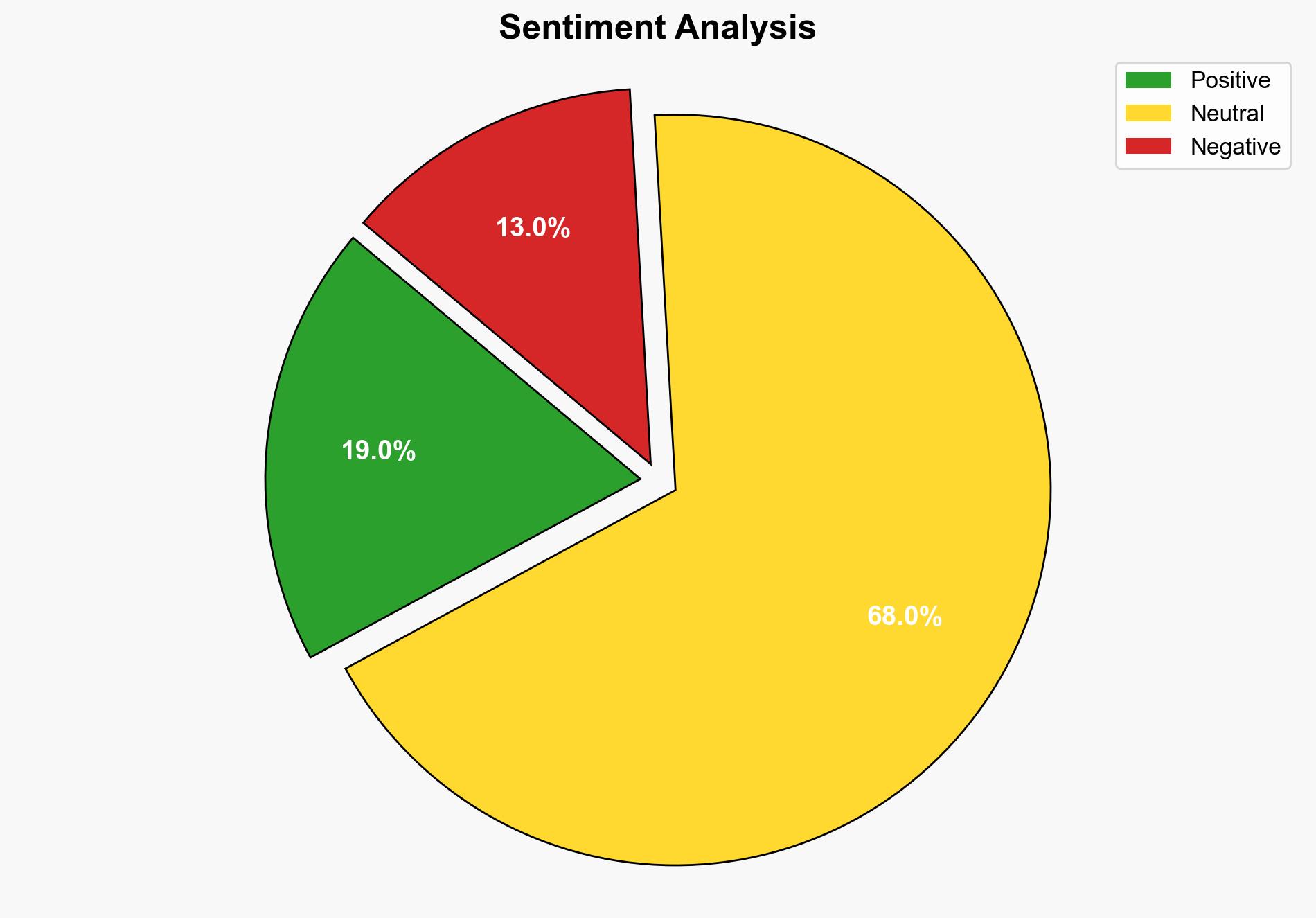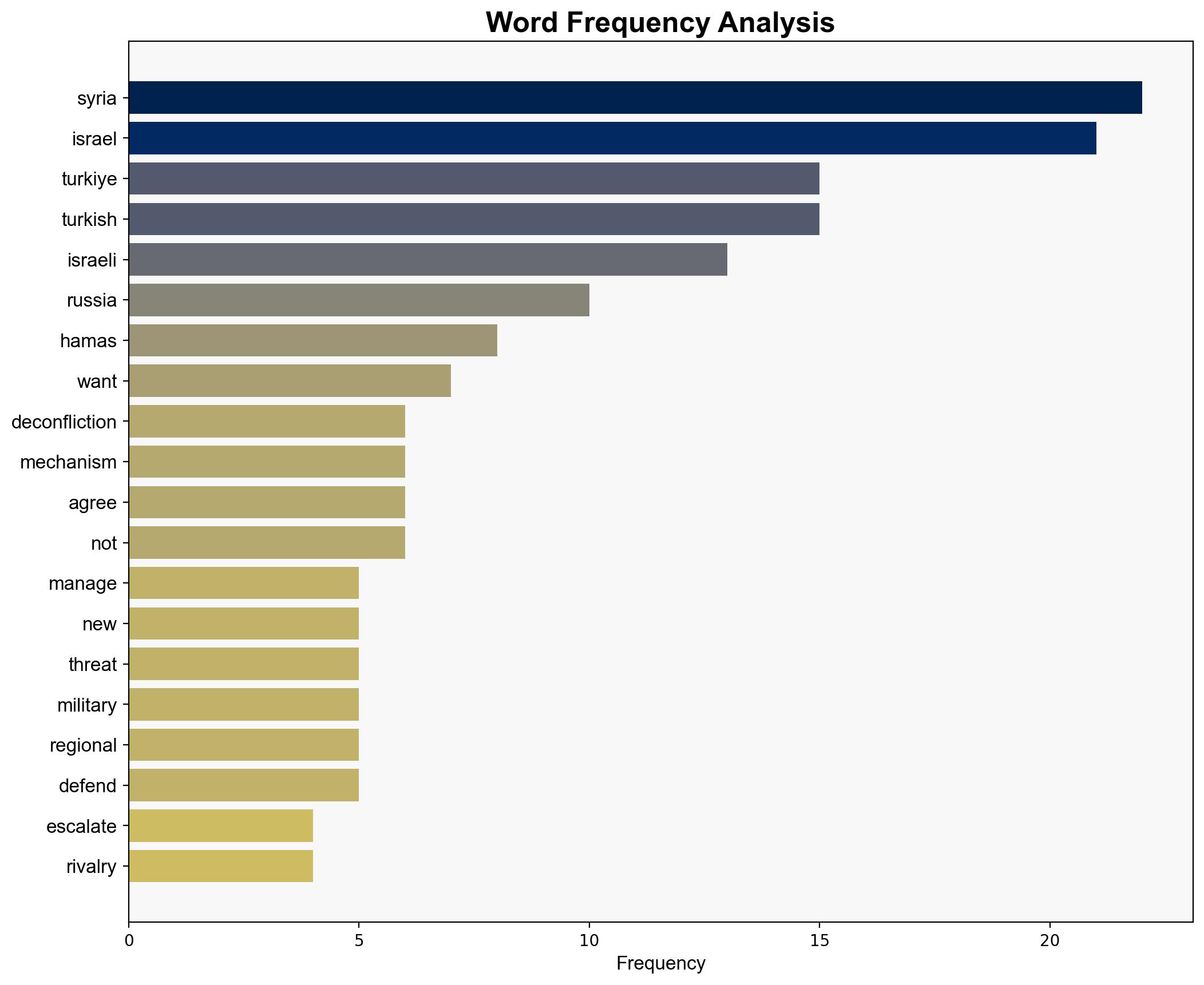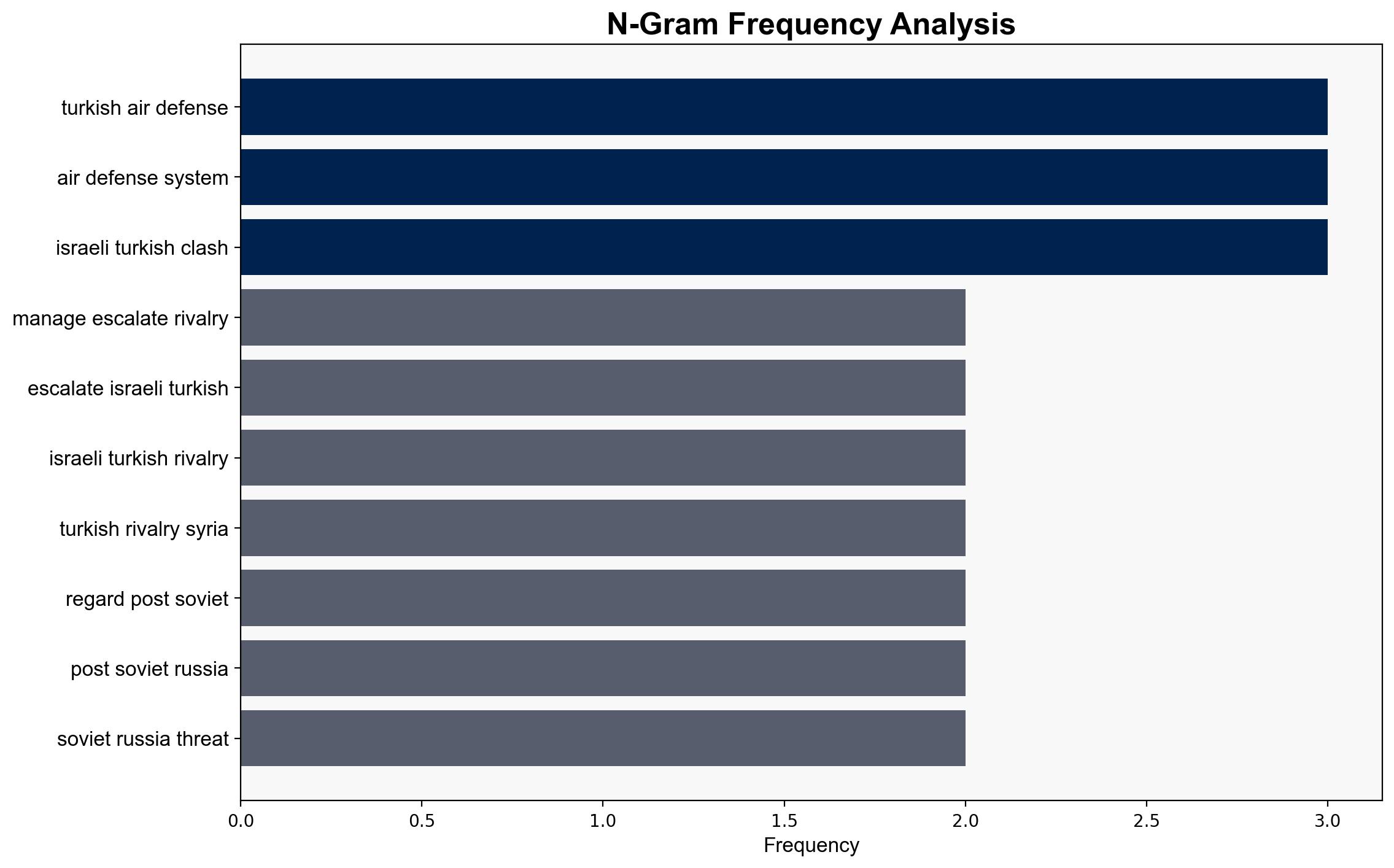Can Israel and Turkiye Manage Their Escalating Rivalry in Syria – Globalresearch.ca
Published on: 2025-04-11
Intelligence Report: Can Israel and Turkiye Manage Their Escalating Rivalry in Syria – Globalresearch.ca
1. BLUF (Bottom Line Up Front)
The escalating rivalry between Israel and Turkiye in Syria poses significant risks of accidental conflict, potentially destabilizing the region. Recent talks in Azerbaijan aimed at establishing a “deconfliction mechanism” underscore the urgency of managing this rivalry. The strategic stakes are high due to differing threat perceptions and regional ambitions. Immediate diplomatic engagement and strategic communication are recommended to prevent military escalation and maintain regional stability.
2. Detailed Analysis
The following structured analytic techniques have been applied for this analysis:
General Analysis
Israel and Turkiye’s rivalry in Syria has intensified following the fall of the Assad Government. The proposed “deconfliction mechanism” seeks to prevent accidental military engagements similar to the existing Israel-Russia arrangement. However, the stakes are higher due to Turkiye’s proximity to Syria and its potential support for Hamas, contrasting with Russia’s non-interventionist stance. The risk of a regional crisis is heightened by the possibility of Turkish air defense systems being used against Israeli operations.
3. Implications and Strategic Risks
The primary risk is a potential military confrontation between Israel and Turkiye, which could escalate into a broader regional conflict. This scenario threatens national security, regional stability, and economic interests. The uncertainty of U.S. support for either side further complicates the situation. The rivalry is driven by regional leadership aspirations, with implications for alliances and power dynamics in the Middle East.
4. Recommendations and Outlook
Recommendations:
- Enhance diplomatic channels between Israel and Turkiye to establish clear communication and conflict resolution mechanisms.
- Encourage multilateral talks involving key regional and international stakeholders to address underlying tensions.
- Invest in intelligence-sharing frameworks to prevent miscalculations and accidental engagements.
Outlook:
Best-case scenario: Successful implementation of a “deconfliction mechanism” reduces tensions and fosters cooperation on shared security concerns.
Worst-case scenario: A military incident escalates into a broader conflict, destabilizing the region and drawing in external powers.
Most likely scenario: Continued diplomatic efforts lead to a temporary stabilization, but underlying tensions persist, requiring ongoing management.
5. Key Individuals and Entities
The report mentions significant individuals and organizations but does not provide any roles or affiliations. Key figures include Israel and Turkiye, with implications for entities such as Hamas and the U.S. The dynamics between these actors are central to the evolving situation in Syria.




